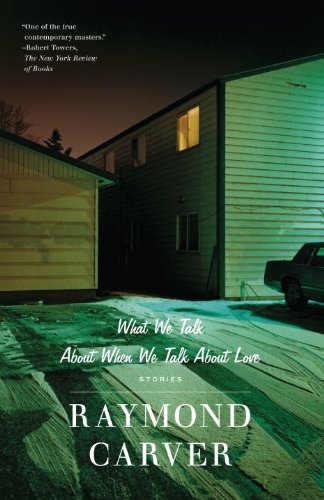
Country: USA
Genre: Literary/Short Stories
Pages: 159
Pass me the dunce cap right now. I have picked up What We Talk About When We Talk About Love after reading an article on Claudia Del Balso's blog about the writer disease of adjectives and adverbs. She pointed Carver out as a writer who achieved kick ass prose without those leeches. So I picked it up again, this time with the willingness to give the man a fair shot.
I managed to make for myself, a case for second readings and another one against reading in the subway. The first time, I found a way to bypass some of the most sharp and sincere prose I was given to read. In his short stories, nothing happens to Carver's characters directly. It already did. His prose has no selfish needs and deals exclusively with his characters and their relationship with loneliness, sometimes created by events and sometimes by their very nature.
Some critics would say that there's no action, that there's not much to his short sketches, but it's not true. His stories are kept short enough to stay universal. They depict real humans and the everyday struggles that are common enough to be unique. The story Tell The Women We're Going takes even a thriller-ish angle and depict with vivacity how normal people, with no story, come to do despicable actions.
It's a short, punchy read that will keep you deeply focused in quick bursts. There is no novel, just voyeuristic glimpses at people's personal distress. Every writer that wrestles with philosophical considerations about his work (like...hem...me) should put the breaks and read Carver. It's as good, if not better than any fiction writing help book. It's serious enough to be dark and touching and it's masterful enough that you can hop from a story to another without cursing at Carver to keep us from longer works.
